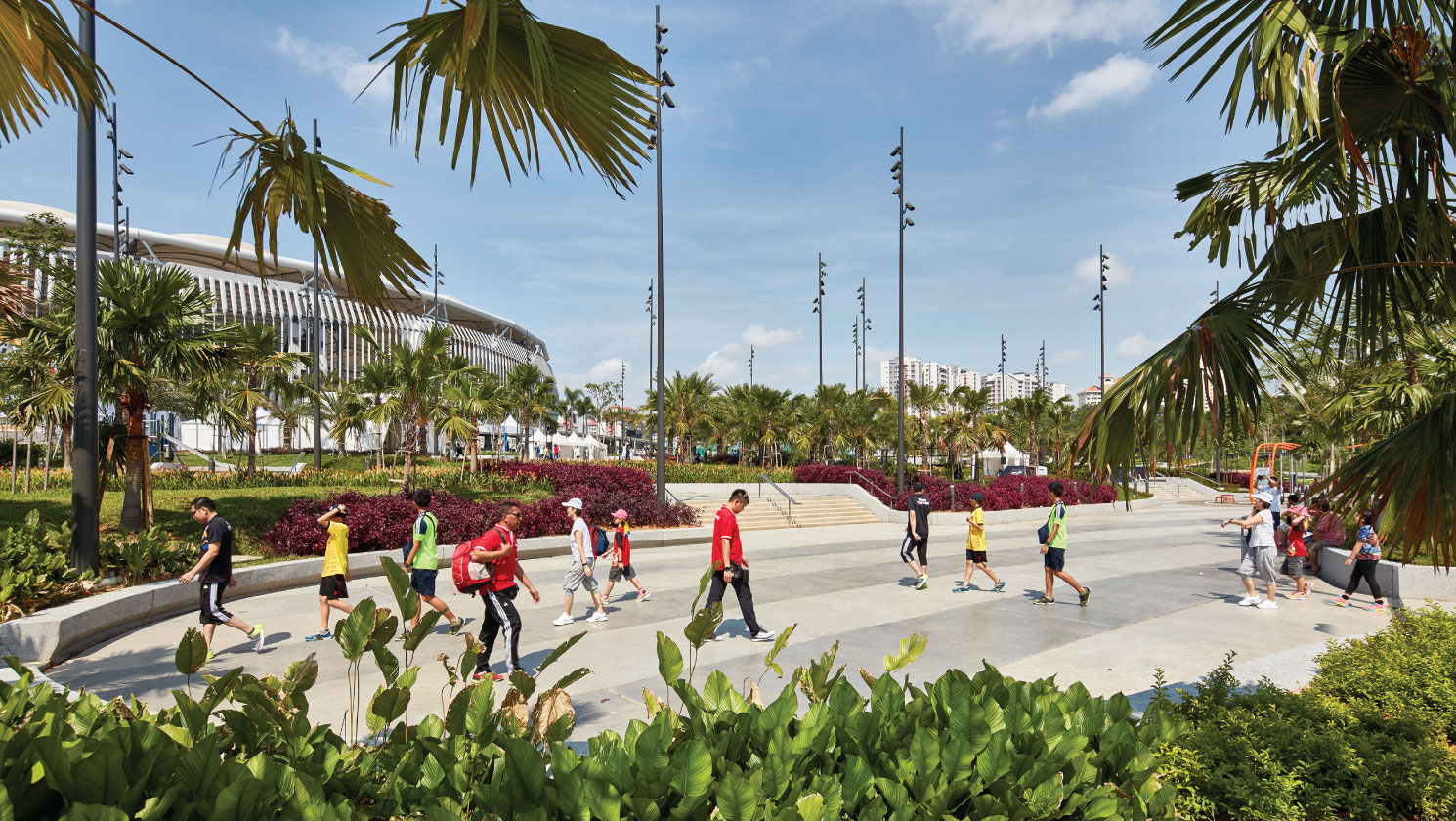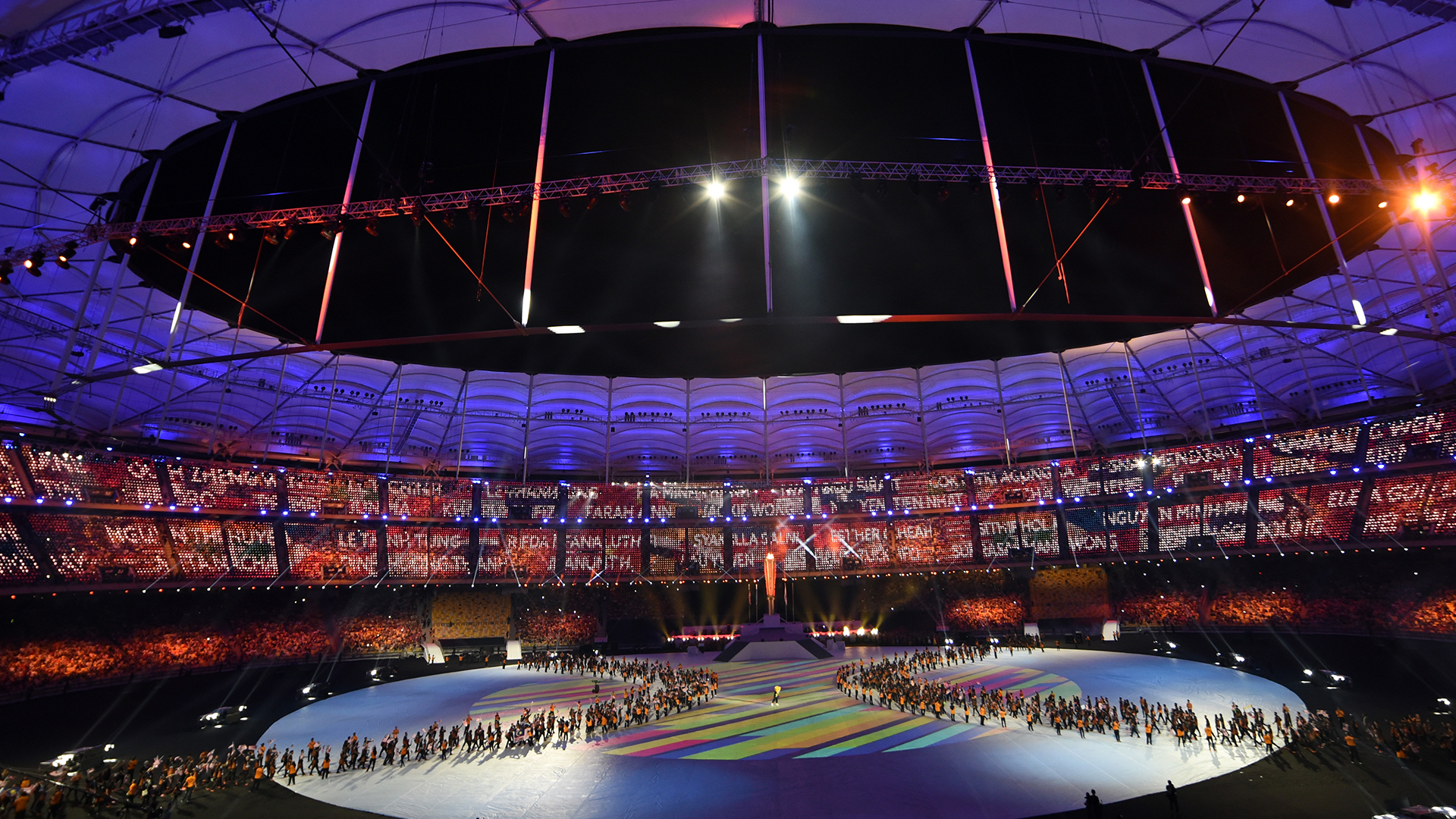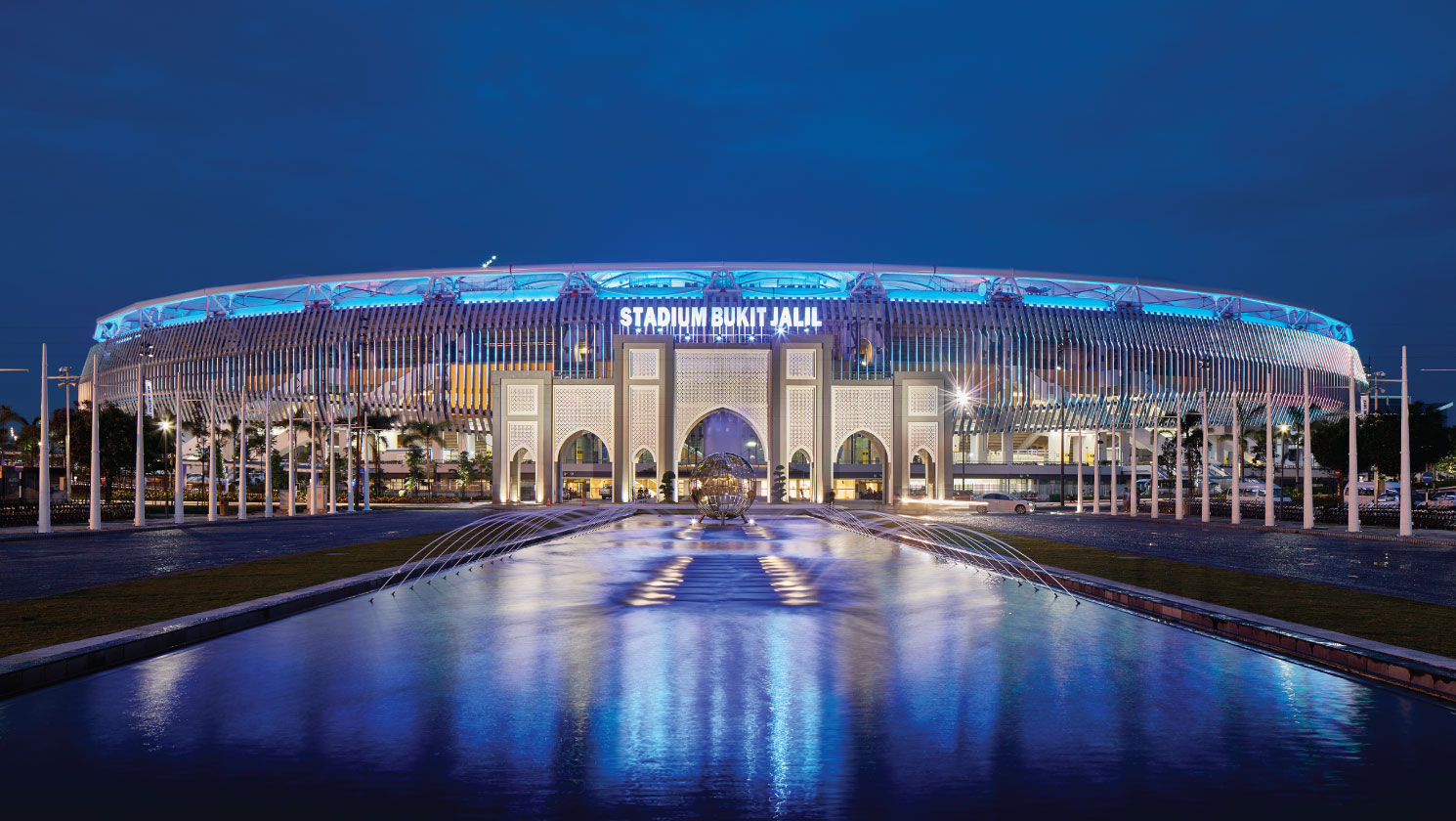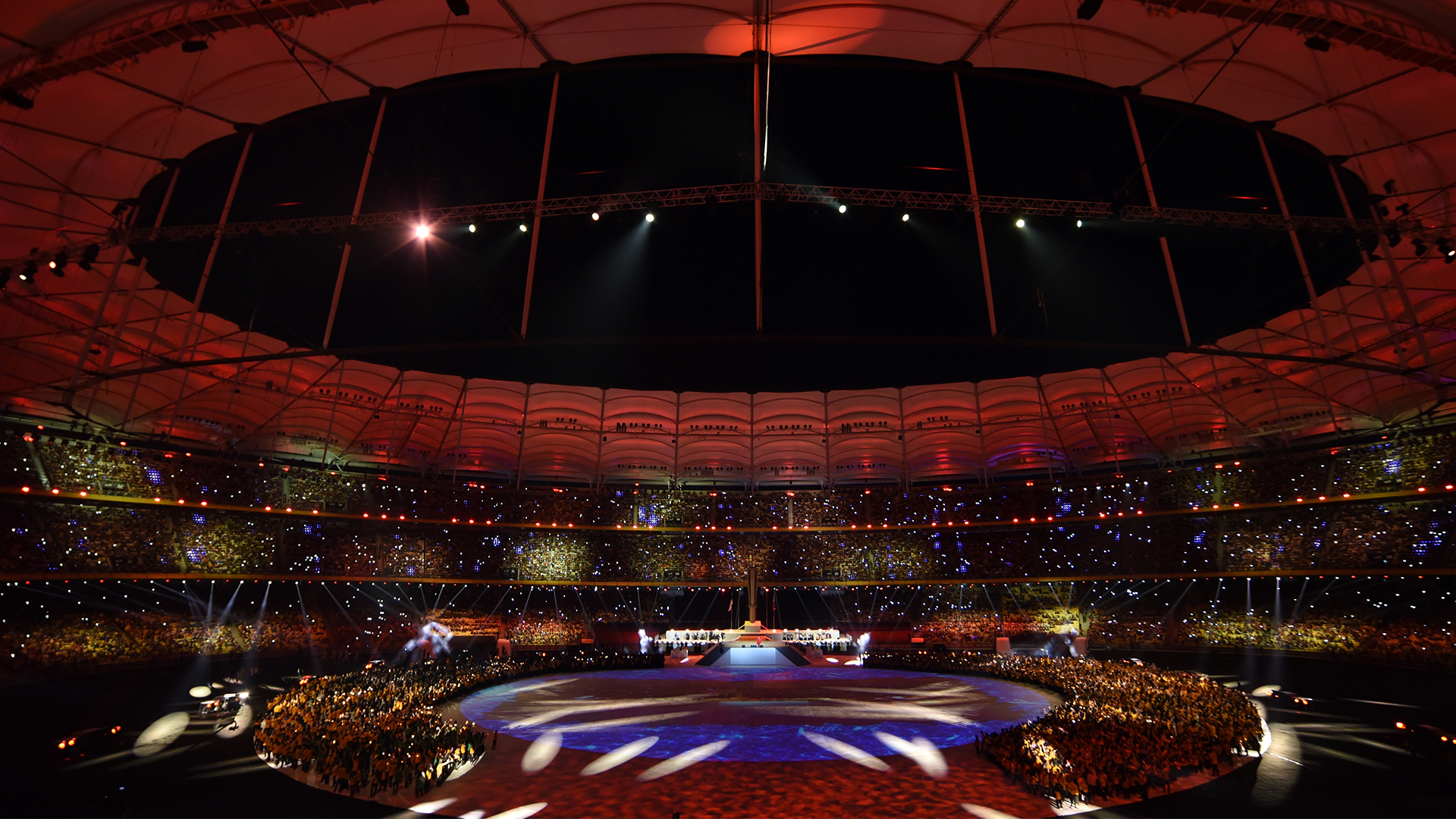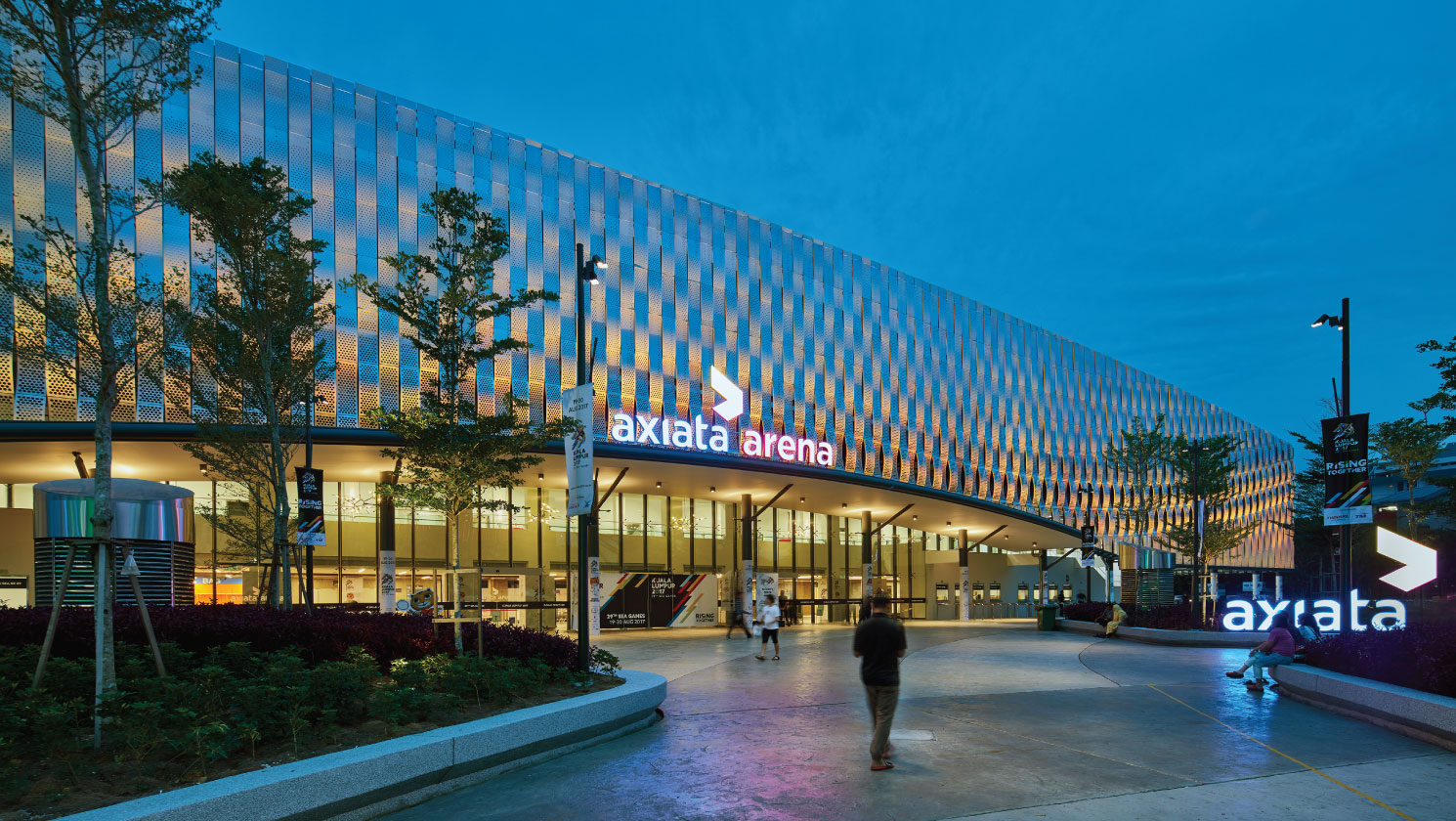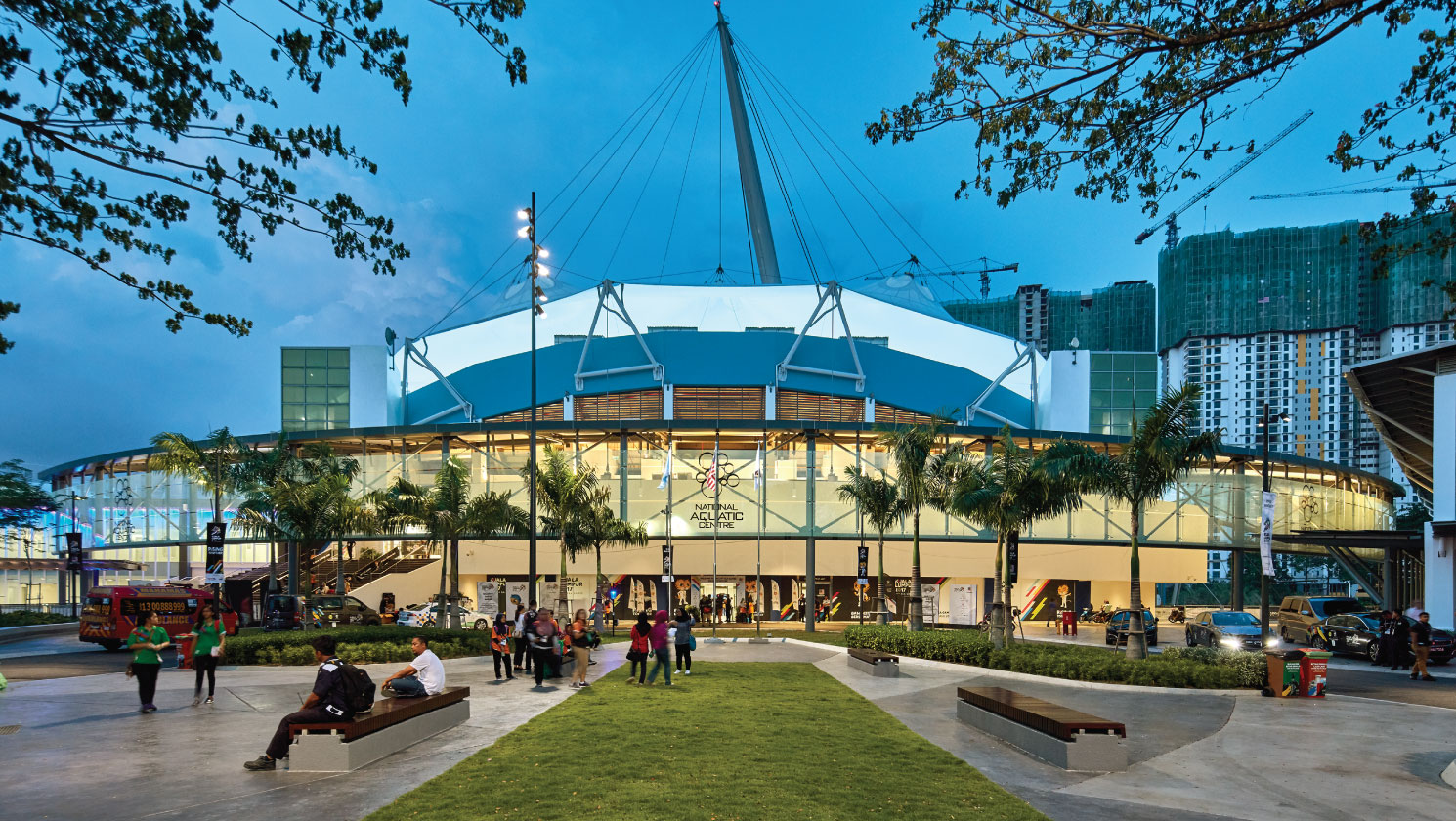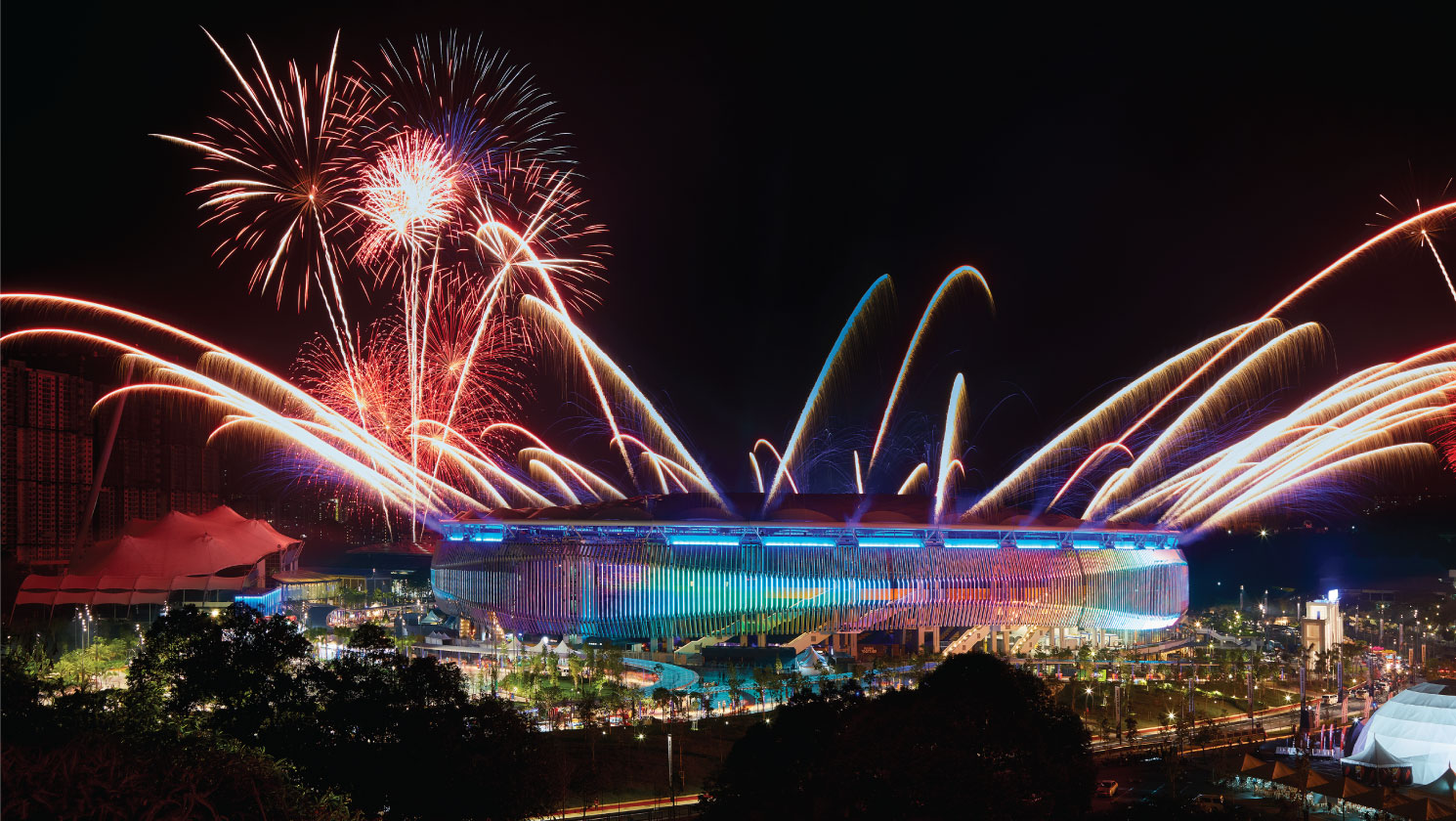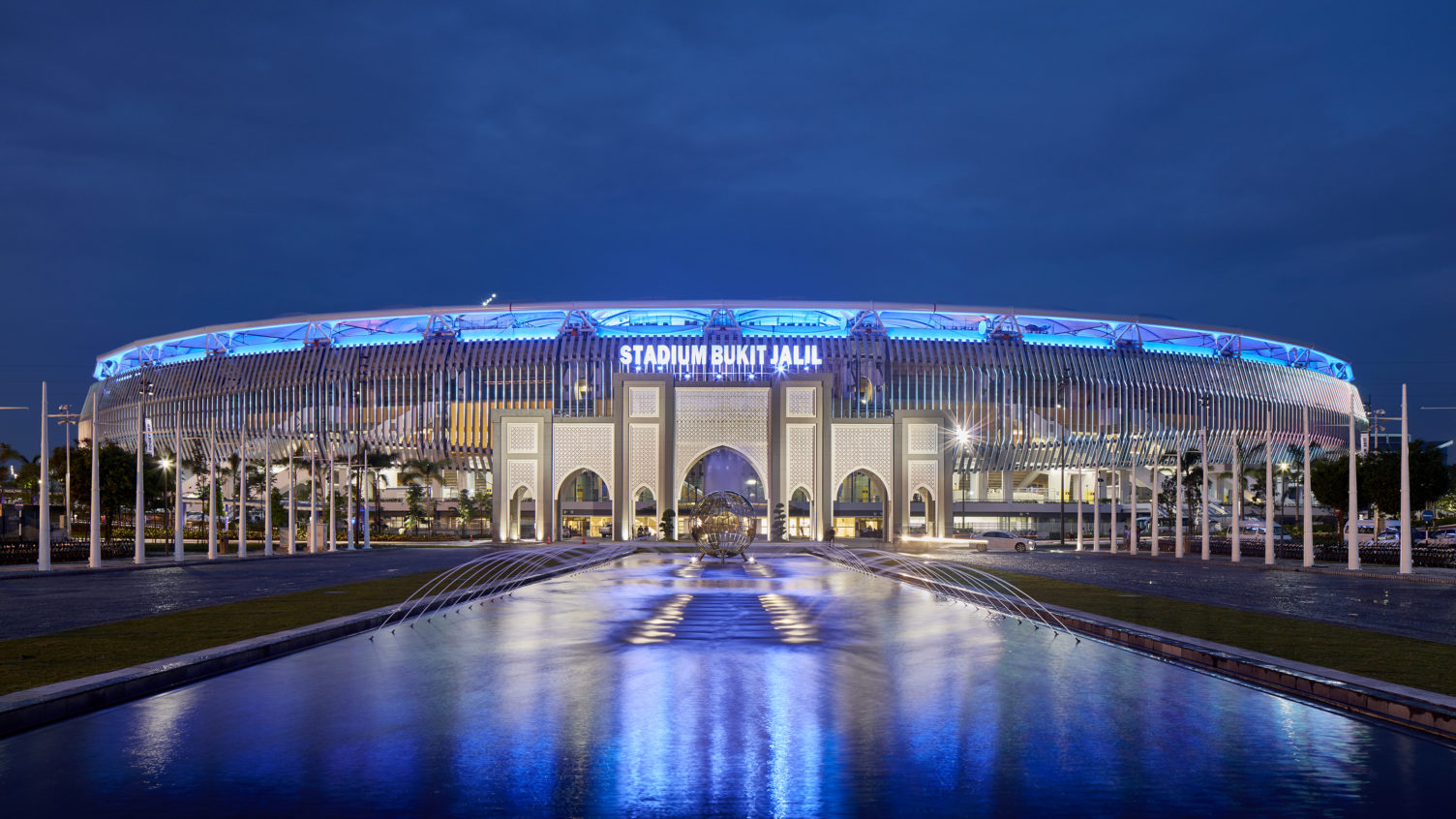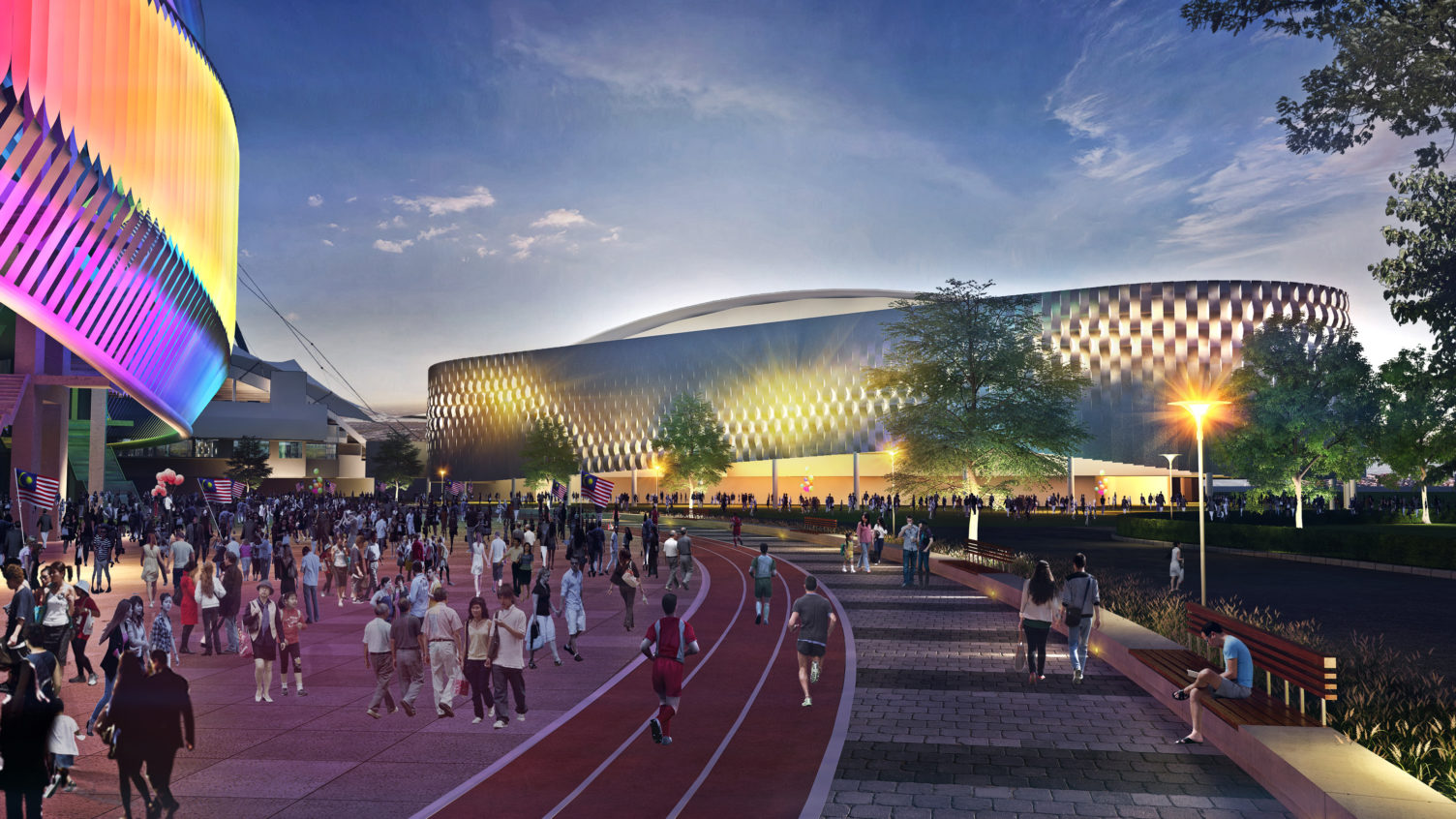KL Sports City
Kuala Lumpur, Malaysia
-
Typologies
Arenas, Mixed-use Venues, Stadiums
-
Building Activities
Aquatic, Concerts, Events, Hockey, Rugby, Soccer, Swimming, Track & Field
-
Services
Architecture, Landscape Architecture, Master Planning
-
Completion
2017
Populous worked with the developer, Malaysian Resources Corporation Berhad (MRCB), on the first stage of KL Sports City, upgrading and revitalizing an existing sports precinct in time to host the 2017 Southeast Asian Games. The redevelopment of Bukit Jalil National Stadium, Putra Stadium (now Axiata Arena), the National Aquatic Centre and the National Hockey Stadium focused on providing exciting and functional world class venues, which also reflected Malaysian identity.
CHALLENGE. The original KL Sports City was opened for the 1998 Commonwealth Games. The brief called for the transformation of the site with design and construction to be completed within 18 months. It would provide four ‘new’ world-class venues to stage major events such as the SEA Games and provide recreation facilities for the Malaysian community year-round. The team strove to create a coordinated and livable sports city by adapting, updating and linking the existing facilities, creating more public parkland and natural shade and adding a 1.4 kilometer synthetic rubber running track, bike paths and shaded canopy over the boulevard linking to the light rail station.
INNOVATION. Populous delivered a facility that is dynamic, distinctive, representative of the sports held there and evocative of Malaysia’s national identity. The new KL Sports City has been conceptualized to better accommodate non-sport events such as concerts, weddings, conventions, product launches, expo sales and exhibitions.
The National Stadium, with the distinguishing stripes of the external façade, was conceived as a reference to the Malaysian Tiger. Constructed from a series of vertical louvers that have been twisted in response to climatic conditions, the new façade offers sun shading and natural ventilation to the concourse without completely obscuring the original skeleton of the stadium.
New, energy efficient LED lights have been integrated into the louvers, allowing digitally-based animations to flow over the three dimensional façade. This means the operators can effectively create a new venue for every event — reflecting each one’s uniqueness. The LED lights offer long-term savings, while still meeting the requirements of television broadcast.
The venues create a new attraction in the night sky, with a vibrant set of colors and patterns lighting up the façades.
IMPACT. The catalyst for the project was the 29th Southeast Asian (SEA) Games and 9th ASEAN Para Games, an important opportunity which returned Malaysia to the world sporting stage. Dato Sri Haji Mohammad Najib bin Tun Haji Abdul Razak, the Prime Minister of Malaysia, said that KL Sports City… “will give inspiration to our athletes and develop the sports industry.”
KL Sports City has become the new benchmark for nations looking to host the SEA Games. It is a long-term plan. The improvements stimulated residential growth, fostering the precinct’s increasing usage, relevance and ‘ownership.’ The project was also shortlisted for the 2017 WAF Awards.
Phase Two, which commenced in 2018, included residential, retail and commercial facilities such as a convention center, youth hostel, park, library and sports museum, creating a modern and livable city at Bukit Jalil. The KL Sports City is capable of hosting a range of commercial-friendly events to complement sporting ones — a living center that can be used every day of the week.
Awards
- 2020
- Winner for Precinct Design at the Good Design Awards
- 2019
- Silver Award in the Sports and Recreation category at Pertibuhan Arkitek Malaysia
- 2018
- Stadium of the Year Award at the World Stadium Congress Awards
- 2017
- Shortlisted in the New and Old Completed Building category at the World Architecture Festival
